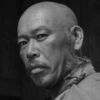7 Best-Selling System Theory Books Millions Trust
Recommended by Sriram Krishnan, Patrick Oshaughnessy, and Hunter Lovins, these books offer best-selling insights into System Theory



When millions of readers and top experts agree on a set of books, you know they’re worth your attention. System Theory has become increasingly vital for understanding complex interactions in science, engineering, and social systems. Its frameworks help solve real-world problems by revealing hidden connections and leverage points. In this collection, you’ll find books that millions have turned to for clarity and guidance in navigating these systems.
Experts like Sriram Krishnan, an investor and former product lead at Twitter and Facebook, praise Thinking in Systems for its practical insights that shaped his strategic thinking. Patrick Oshaughnessy, CEO of O’Shaughnessy Asset Management, highlights The Systems Bible for its memorable lessons on system failures. Meanwhile, Hunter Lovins, founder of Natural Capitalism Solutions, recommends foundational works that help leaders grasp systemic change.
While these popular books provide proven frameworks, readers seeking content tailored to their specific System Theory needs might consider creating a personalized System Theory book that combines these validated approaches with your unique background and goals.
Recommended by Sriram Krishnan
Investor and former product lead at Twitter, Facebook, Snap
“@alive_eth Fantastic book” (from X)
by Donella H. Meadows, Diana Wright··You?
by Donella H. Meadows, Diana Wright··You?
Donella H. Meadows, a pioneering environmental scientist and systems analyst, crafted this book to translate complex system theory into accessible insights that matter deeply in today's interconnected world. You’ll learn how to identify and understand feedback loops, leverage points, and systemic structures that influence everything from ecosystems to economies. Chapters illustrate concepts with relatable examples, like thermostats and family dynamics, helping you grasp how seemingly small actions ripple through larger systems. If you want to sharpen your critical thinking on global challenges or improve problem-solving in any context, this book offers a grounded perspective that balances scientific rigor with practical humility.
by Peter Titelman··You?
by Peter Titelman··You?
Peter Titelman's decades of experience in family systems therapy led him to write this book as a guide for clinicians seeking practical ways to apply Bowen Family Systems Theory. You’ll explore how to handle complex clinical challenges like marital fusion, emotional cut-off, and child-focused divorce through detailed case studies on alcoholism, depression, and phobias. The book offers clear frameworks for family systems assessment and shows you how to adapt theory across diverse populations including elderly clients and children with medical issues. If you’re a clinician aiming to deepen your therapeutic toolkit and approach family dynamics with nuance, this book will expand your understanding with real clinical examples and structured applications.
by TailoredRead AI·
This tailored book explores advanced concepts in system theory, focusing on your unique interests and challenges. It delves into key principles and complex interactions that define systems, examining how components interrelate and influence one another. By concentrating on your background and goals, it provides a personalized journey through system behaviors, feedback mechanisms, and modeling techniques. The content matches your experience level and desired learning outcomes, allowing you to deepen your understanding efficiently. This approach reveals nuanced perspectives and practical examples that highlight the dynamic nature of systems, making intricate ideas accessible and relevant to your specific pursuits.
by Lennart Ljung·You?
by Lennart Ljung·You?
Lennart Ljung's decades of experience in control engineering culminate in this detailed exploration of system identification, focusing on building mathematical models from input-output data. You’ll gain a solid grasp of both the theoretical underpinnings and practical choices involved, including chapters on subspace methods and nonlinear models like neural networks. This book suits engineering students and professionals who need to understand how to translate dynamic system data into usable models, emphasizing the user’s perspective in applying complex methodologies. Expect a rigorous yet accessible approach that balances foundational theory with evolving techniques in system modeling.
by Barbara G. Hanson·You?
by Barbara G. Hanson·You?
When Barbara G. Hanson noticed a lack of clear, accessible texts on general systems theory within social sciences, she set out to bridge that gap. This book distills complex system concepts into straightforward language, focusing on their application in family therapy and social work. You'll learn foundational ideas such as wholeness, interdependence, and system boundaries, with examples tailored to social contexts. If you're involved in social sciences or want a solid grounding in how systems thinking applies beyond pure science, this book offers a concise, approachable introduction without overwhelming jargon.
Recommended by Patrick Oshaughnessy
CEO @ O’Shaughnessy Asset Management
“@Alex_Danco @tobi The best book. I always think of the image of the French guns pointing the wrong way and unable to turn.” (from X)
The breakthrough moment came when John Gall, a systems expert with a knack for humor and critical thinking, challenged conventional wisdom about how systems operate and fail. In this book, you’ll explore how systems, large or small, behave unpredictably and why attempts to control them often backfire, illustrated by memorable examples like the infamous French guns that couldn't be repositioned. You’ll gain insights into system behaviors, such as information degradation in closed systems, helping you understand complex interactions rather than just technical definitions. This book is particularly useful if you’re navigating organizational challenges or designing systems where human factors and unintended consequences matter.
by TailoredRead AI·
This personalized book explores system dynamics with a focus on your unique interests and background, offering tailored explanations and examples to accelerate your understanding. It examines the core principles of feedback loops, system structures, and behavior patterns, applying these concepts through customized scenarios that resonate with your goals. By concentrating on the aspects of system dynamics most relevant to you, the book reveals how complex systems evolve and respond over time. This tailored approach ensures you engage deeply with content that matters, making complex ideas accessible and applicable to your specific context.
by Frank M. Callier, Charles A. Desoer·You?
by Frank M. Callier, Charles A. Desoer·You?
Frank M. Callier and Charles A. Desoer drew from years of teaching advanced linear systems to create a text that balances theory with engineering application. You learn to analyze finite-dimensional linear systems with an emphasis on practical challenges like small nonlinearities and feedback perturbations that affect real-world performance. The book assumes you have a foundational grasp of linear algebra and differential equations, making it ideal for graduate students or engineers seeking deeper insights into system robustness and control. Chapters explore key concepts such as system stability and design considerations, ensuring you develop a nuanced understanding of how to improve physical systems.
by Andrew P. Sage··You?
by Andrew P. Sage··You?
Unlike most system theory books that focus solely on abstract concepts, this work by Andrew P. Sage dives deep into the mathematical foundations underlying estimation, control, and communication systems. You’ll find rigorous treatments of optimal control and filter theory alongside a clear discussion of linear system theory, all aimed at conveying the full scope of advances in these interconnected fields. Sage’s academic experience shines through in chapters that balance theory with multiple viewpoints, helping you grasp both the breadth and detail of modern system theory. This book suits those looking to elevate their understanding of system estimation methods and control applications in engineering contexts.
Proven System Theory Methods, Personalized ✨
Get expert-backed system insights tailored to your unique challenges and goals.
Trusted by thousands of System Theory enthusiasts worldwide
Conclusion
These seven books paint a clear picture: System Theory is both broad and deeply applicable. From Donella Meadows’ accessible insights in Thinking in Systems to Lennart Ljung’s rigorous engineering focus in System Identification, the collection balances foundational ideas with technical depth. If you prefer proven methods, start with Thinking in Systems for a systemic perspective. For validated approaches in engineering, combine Estimation Theory With Applications to Communications and Control with Linear System Theory.
Clinicians will find grounded applications in Clinical Applications of Bowen Family Systems Theory, while social scientists can turn to General Systems Theory for clear, relevant examples. Alternatively, you can create a personalized System Theory book to combine proven methods with your unique needs.
These widely-adopted approaches have helped many readers succeed in understanding and managing complex systems. Whether you want practical tools or theoretical grounding, this collection reflects books that continue to shape thinking across disciplines.
Frequently Asked Questions
I'm overwhelmed by choice – which book should I start with?
Start with Thinking in Systems by Donella Meadows. It offers an accessible introduction to core system concepts and is widely recommended by experts for building a strong foundation.
Are these books too advanced for someone new to System Theory?
Not at all. Books like Thinking in Systems and General Systems Theory are written with clarity for newcomers, while others like System Identification suit readers seeking technical depth.
What's the best order to read these books?
Begin with broader conceptual books like Thinking in Systems, then explore specialized texts such as System Identification or Clinical Applications of Bowen Family Systems Theory depending on your interest.
Should I start with the newest book or a classic?
Classics like Thinking in Systems remain highly relevant. Starting with foundational works helps you grasp essential principles before moving to newer, more technical texts.
Do I really need to read all of these, or can I just pick one?
You can pick based on your goals. For general understanding, one or two books suffice. But combining perspectives from different books enriches your grasp of System Theory.
How can I get System Theory insights tailored to my specific needs?
These expert books offer valuable knowledge, but you can complement them by creating a personalized System Theory book that adapts proven methods to your unique background and goals for efficient learning.
📚 Love this book list?
Help fellow book lovers discover great books, share this curated list with others!
Related Articles You May Like
Explore more curated book recommendations






